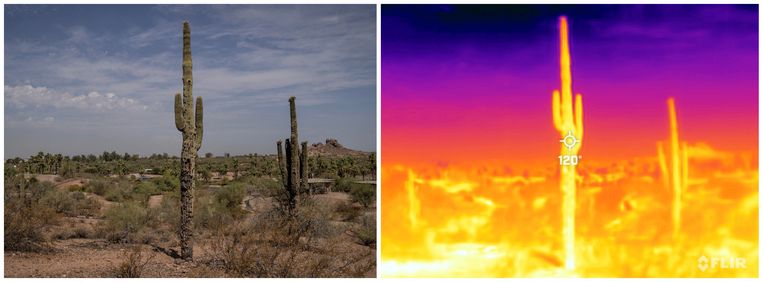
July was the hottest month on record, but it’s cold here. how is that possible?
In the Netherlands it has been mainly cold, wet and autumnal for weeks, while July has been the warmest month worldwide since we have taken temperature measurements. Our coldness is also linked to this heat, explains KNMI’s Rob Groenland.
Forest fires in Greece, heavy showers in Slovenia. Temperatures above 45 degrees in southern Italy, and now another rare summer storm over Scandinavia. The summer of 2023 looks like a series of weather swings. Does all of this have anything to do with climate change, or is there such a thing as “normal weather”?
“Most weather is still some kind of random number generator,” says Rob Groenland, KNMI meteorologist. But global warming is a component of that. This is a complicated mix.”
July was the warmest month worldwide. In Holland it was barely 20 degrees weeks ago. how is that possible?
To answer that question, you actually have to zoom out to the entire northern hemisphere. Then you see that it’s very hot in the southern United States, southern Europe, parts of China, and southern Asia. Because of this heat, the temperature difference with the North Pole is greater than what we normally see. As a result, we are dealing with a draft at an altitude of 10 km that is stronger than usual. This will lead to stronger westerly winds and cooler, more volatile weather across northwest Europe.”
Does this mean that our cold and wet weather is also a consequence of climate change?
“Without climate change, there are also heat waves. But we see them increasing in intensity and frequency due to global warming. Take for example the temperatures above 40 degrees that we saw for the first time in the Netherlands in 2019. You need a set of specific conditions for that on any However, even then, these temperatures do not occur without climate change.”
“The heat in other regions of the world is now again affecting our weather. By itself, the cooler summer period in the Netherlands is not exceptional. You could say that this is largely due to the daily weather, but climate change has some effect.”
What about the storm in Norway and Sweden?
“We see that it originates on the border of very warm air in southern Europe and that stronger cold air current we are dealing with. The collision of these weather systems leads to areas of low pressure. This explains the massive showers in Slovenia last weekend. In fact, this area has now moved into Scandinavia across the eastern edge of Poland. Because of the presence of the Baltic Sea, the North Sea, and mountains in Norway, this disturbance now causes a lot of rain and wind.”
Could we be too quick to attribute any form of exceptional weather to global warming?
“This trend is also there. Not much weather can be linked to climate change at all. But sometimes this link is there. Obviously, the rapid increase in temperature due to the increase in greenhouse gases is unique historically. In the Middle Ages Central, for example, there are also indications of a warm period – but what we’re seeing now is much stronger, and the temperature is rising faster.”
“So it is becoming increasingly important for us at KNMI to not only look at the weather in the short term. But also to monitor operations in the long term. We do this, for example, through World Weather Attribution, an international collaboration with which we are trying to determine whether Climate change plays a role in extreme weather.”
Read the latest news on Climate change and extreme weather in our live blog.
Read also:
Much support for the flooded Slovenian camp site, more than 16,000 euros collected
The Dutch have set up crowdfunding campaigns for Camping Menina, a popular campground in Slovenia that was flooded last weekend due to heavy flooding in the country.

“Travel enthusiast. Alcohol lover. Friendly entrepreneur. Coffeeaholic. Award-winning writer.”
